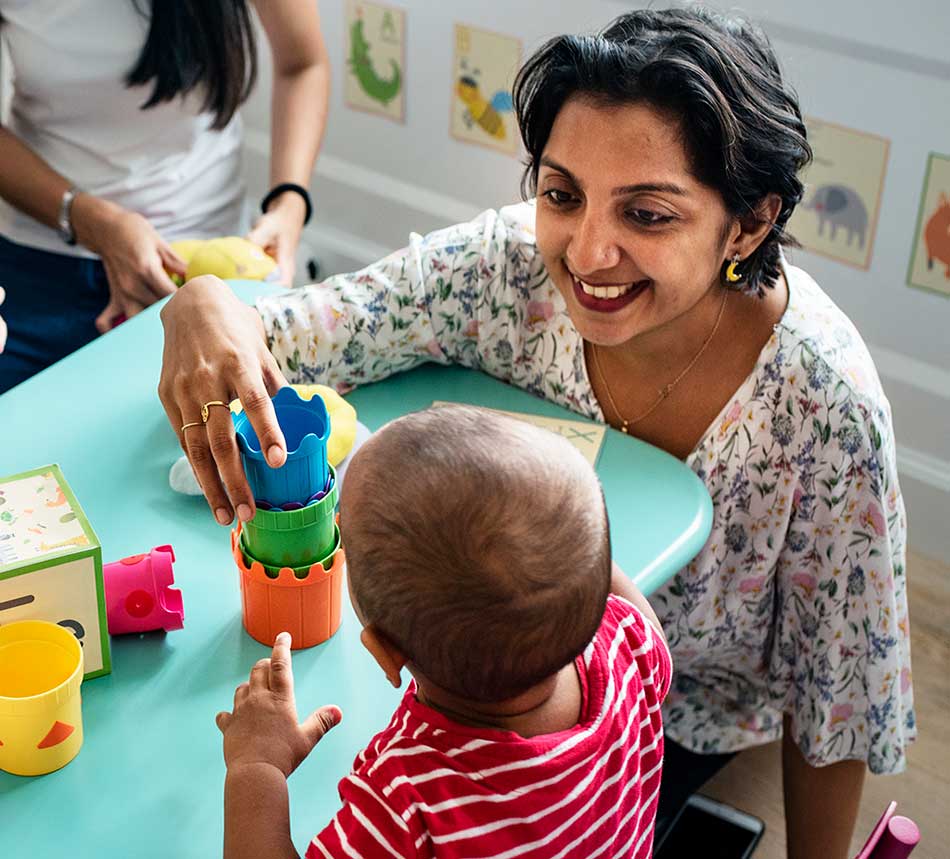
- November 3, 2021
- Communication, Language
My Toddler is Stuttering Should I be Concerned?
Is your toddler repeating sounds and words, all of a sudden? Do they seem to get stuck on the first word or repeat entire phrases or sentences? Are they struggling to communicate their ideas because of frequent repetitions? Your toddler may be experiencing a common communication challenge called Developmental Stuttering.
What is it, and what should you do about it?
Developmental stuttering starts when children are learning to speak and affects 5 to 10 percent of children between 2 and 6 years old. It is thought to have a number of causes that interact with each other, including genetics and a motor system that can’t keep up with the child’s verbal ability.
Most children will outgrow their stuttering as they age, but risk factors can predict if stuttering will persist. According to the American Speech-Language-Hearing Association (ASHA), these include:
- Gender: Boys are more likely to continue stuttering.
- Age of onset of stuttering: Stuttering that starts after the age of 3.5 years old, stuttering is more likely to continue.
- Family history of stuttering: Stuttering is thought to be genetic, so if there is a family history of stuttering, your toddler may continue stuttering.
So, what should you do? The most important thing is to try not to worry. I know, easier said than done! Contact a Speech and Language Pathologist who has experience with stuttering to do an assessment. They are the experts in stuttering and will be able to tell you the best course of action. You should also seek help, according to ASHA, if any of the following is true:
- Stuttering lasts more than 6 to 12 months.
- Stuttering starts after the age of 3.5.
- Stuttering frequency and/or severity increases.
- Secondary characteristics such as body tension, face grimacing or struggling to communicate.
- Avoiding talking or saying it is too hard to talk.
- There is a family history of stuttering.
In the GTA, you can contact the Ontario Association of Speech-Language Pathologists and Audiologists (osla.ca) to find a clinician. We are also fortunate to have the Speech and Stuttering Institute in our own backyard. They are the go-to for stuttering therapy, education, and research. If your child is under the age of 5, you can contact your local Children’s Treatment Centre for the Preschool Speech and Language program in your area. Your school SLP will also be able to help school-age children with all communication needs.
Sources:

